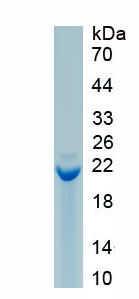Recombinant Synuclein Alpha (SNCa) 

SNC-A; aSYN; PD1; PARK1; PARK4; NACP; Non-A Beta Component Of Alzheimer's Disease Amyloid Precursor Protein; Non-A4 component of amyloid precursor
Overview
Properties
- Product No.RPB222Mu02
- Organism SpeciesMus musculus (Mouse) Same name, Different species.
-
Applications
Positive Control; Immunogen; SDS-PAGE; WB.
If bio-activity of the protein is needed, please check active protein.
Research use only - DownloadInstruction Manual
- CategorySignal transductionNeuro science
- Source Prokaryotic expression, Host E.coli
- Endotoxin Level<1.0EU per 1µg (determined by the LAL method)
- Subcellular LocationNucleus, Cytoplasm
- Molecular Mass 18.2kDa, Accurate 21kDa(Analysis of differences refer to the manual)
- Residues & TagsMet1~Ala140 with N-terminal His Tag
- Buffer FormulationPBS, pH7.4, containing 0.01% SKL, 5% Trehalose.
- Traits Freeze-dried powder, Purity > 90%
- Isoelectric Point4.4
Share your citation
Upload your experimental result
Review
Leave a message
Loading...
Sign into your account
Share a new citation as an author
Upload your experimental result
Review
Please attach serial No. on instruction manual


Contact us
Please fill in the blank.
Name*
Organization
Address
E-mail address*
Telephone
Inquiry*
Verification code*

Sequence

Usage
Reconstitute in 10mM PBS (pH7.4) to a concentration of 0.1-1.0 mg/mL. Do not vortex.
Storage
Avoid repeated freeze/thaw cycles. Store at 2-8°C for one month. Aliquot and store at -80°C for 12 months.
Stability
The thermal stability is described by the loss rate. The loss rate was determined by accelerated thermal degradation test, that is, incubate the protein at 37°C for 48h, and no obvious degradation and precipitation were observed. The loss rate is less than 5% within the expiration date under appropriate storage condition.
Increment services
-
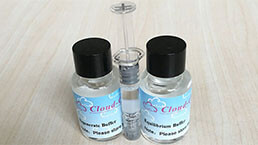 Endotoxin Removal Kit
Endotoxin Removal Kit
-
 BCA Protein Quantification Kit
BCA Protein Quantification Kit
-
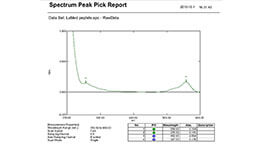 Protein Labeling Customized Service
Protein Labeling Customized Service
-
 Molecular Mass Marker for Protein
Molecular Mass Marker for Protein
-
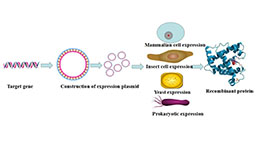 Recombinant Protein Customized Service
Recombinant Protein Customized Service
-
 Monoclonal Antibody Customized Service
Monoclonal Antibody Customized Service
-
 Polyclonal Antibody Customized Service
Polyclonal Antibody Customized Service
-
 Protein Activity Test Experiment Service
Protein Activity Test Experiment Service
-
 Immunoprecipitation (IP) Experiment Service
Immunoprecipitation (IP) Experiment Service
-
 Buffer
Buffer
-
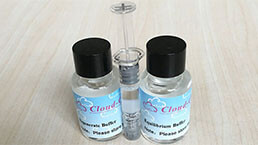 Endotoxin Removal Kit II
Endotoxin Removal Kit II
-
 Real Time PCR Experimental Service
Real Time PCR Experimental Service
-
 Spike RBD Protein (S-RBD)
Spike RBD Protein (S-RBD)
-
 Protein G
Protein G
-
 Protein A
Protein A
Citations
- Cerebrospinal fluid–based kinetic biomarkers of axonal transport in monitoring neurodegenerationPubMed: PMC3428100
- Lysosomal dysfunction increases exosome-mediated alpha-synuclein release and transmissionPubMed: PMC3107939
- Parkinson's disease induced pluripotent stem cells with triplication of the α-synuclein locusPubMed: PMC3265381
- Mutations of PARK Genes and Alpha-Synuclein and Parkin Concentrations in Parkinson’s DiseaseIntechopen:Source
- Apolipoprotein Eε4: A Biomarker for Executive Dysfunction among Parkinson's Disease Patients with Mild Cognitive Impairmentpubmed:29326545
- The anti-aging protein klotho alleviates injury of nigrostriatal dopaminergic pathway in 6-hydroxydopamine rat model of Parkinson's disease: Involvement of PKA/CaMKII/CREB signaling.pubmed:29107062
- Development and biochemical characterization of a mouse model of Parkinson's disease bearing defective glucocerebrosidase activityPubmed: 30521842
- Potential therapeutic effects of antagonizing adenosine A2A receptor, curcumin and niacin in rotenone-induced Parkinson's disease mice modelPubmed: 31820278
- Nose to brain delivery of rotigotine loaded chitosan nanoparticles in human SH-SY5Y neuroblastoma cells and animal model of Parkinson's diseasePubmed: 32084576
- Anti-α-synuclein ASO delivered to monoamine neurons prevents α-synuclein accumulation in a Parkinson's disease-like mouse model and in monkeysPubmed: 32810825






